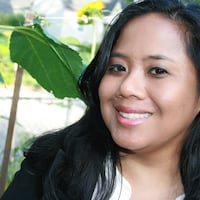Did you buy Iraqi currency?
The FBI has set up a hotline to provide more information on its investigation: 877-236-8947
The agency is asking those who were told they would make enormous profits to complete an online questionnaire. It’s available at https://forms.fbi.gov/iraqi-dinar-investment-investigation
Sterling Currency Group’s leaders lived the high-life: mansions in Buckhead and Brookhaven, luxury cars, property along the Florida panhandle. One even flies a private stunt plane, records state.
They trumpeted their good works, too. Tyson Rhame, an Air Force Academy graduate who lives in Brookhaven, ran a family foundation that got notice for its donations to DeKalb County schools. News accounts said his partners in Sterling, Buckhead's James and Carol Laurette Shaw, donated 100 acres for Savannah College of Art and Design's equestrian center. The pavilion is named in their honor.
But the business that helped bankroll their lifestyle and largess — dealing in Iraqi currency — is a scam, according to a federal complaint seeking to seize homes, cars and aircraft. And, court documents say, the philanthropists fretted about getting caught.
“We are risking serious jail time as promoters of a Ponzi scheme…” James Shaw wrote Rhame in a 2010 email, according to the complaint filed in U.S. District Court in Atlanta. In the same email, Shaw said his wife had been “very nervous” and “crying” because “she knows we are running an illegal operation.”
Early this month, the FBI raided locations related to Sterling. No arrests have been made, nor has anyone been charged with a crime, a spokeswoman from the U.S. Attorney’s Office in Atlanta said. But federal prosecutors allege that the properties and related businesses were used to defraud investors and launder proceeds.
Federal prosecutors declined further comment, except to say they are searching for possible victims.
Michael Brown, attorney for Rhame at Alston & Bird, declined to comment. Numerous attempts to reach Rhame and the Shaws were not successful. A woman who answered a phone number posted at the gate of the Shaws’ ivy-covered, $4.8 million Tuxedo Park estate said a reporter had the wrong number.
‘Sterling’ reputation
Sterling, also known as Dinar Banker, operated in the obscure and lightly-regulated world of foreign currency trading, where investors take bets on whether the value of a country's money will rise or fall. On its website, Sterling bills itself as "Your #1 Source for Buying & Selling Iraqi Dinar."
“We believe in serving our customers with Integrity & Transparency,” it says.
The federal complaint says that Sterling used a well-known scheme. After the Iraq War began in 2003, various promoters began circulating online rumors that the U.S. Department of the Treasury planned to give the country’s currency a massive boost. When the currency was revalued, holders of dinar would get rich cashing out, the scheme goes.
Sterling was wildly successful selling hard currency, according to investigators. Since 2004, the company claimed $600 million in gross sales, the complaint says. In 2011 alone, their gross receipts totaled more than $245 million, according to the court filing.
Bundles of dinars would arrive at Atlanta’s Hartsfield-Jackson International Airport from the Middle East, then were hauled in trucks to an area office. Employees sold them them via phone and online across the U.S. and Canada.
Investors could snap them up on layaway, or cash on delivery.
Dinar promoters ran chat rooms and hosted conference calls to make sure buyers were eager. One pitchmen, identified only as “TerryK” in the complaint, was secretly on Sterling’s payroll to the tune of $150,000, the complaint states.
Dinar trading was poised to go mainstream, the company suggested on its website in 2010, according to the federal complaint. Clients would be able to exchange their Iraqi currency at kiosks and “remote satellite offices” at major airports, including Atlanta, Chicago-O’Hare and New York-JFK.
And Sterling assured investors it would be a trusted supplier in an industry rife with scams. On its website, it states it is registered as a Money Service Business with the Treasury Department, has an A rating with the Better Business Bureau and “supplies a Certificate of Authenticity with every currency order that guarantees in writing that all of our currency is authentic. Our currency is legally obtained, legally transported, legally declared, and from non-criminal origin.”
“We are proud of our ‘Sterling’ reputation and the trust our customers put in us!” the website said.
The predicted currency reset never happened. Currently, it takes 1,200 dinar to equal the value of $1. These promotions have become such a concern to the FBI that it set up a webpage to field tips from possible victims.
On the day of the FBI raid, “TerryK” told investigators he made up claims that he had sources who knew the dinar was about to rise, court documents say. A Sterling executive told the FBI that such rumors were a “mythology.”
The government alleges that Sterling laundered revenues through a complex network of companies and accounts. The complaint names numerous companies and trusts said to be linked.
Alex Rue, a securities attorney and former lawyer with the Securities and Exchange Commission, said investors should be wary of claims of opportunities that are too good to be true.
“There is always an element of, ‘Why am I so lucky?’” Rue said.
About the Author
Keep Reading
The Latest
Featured



